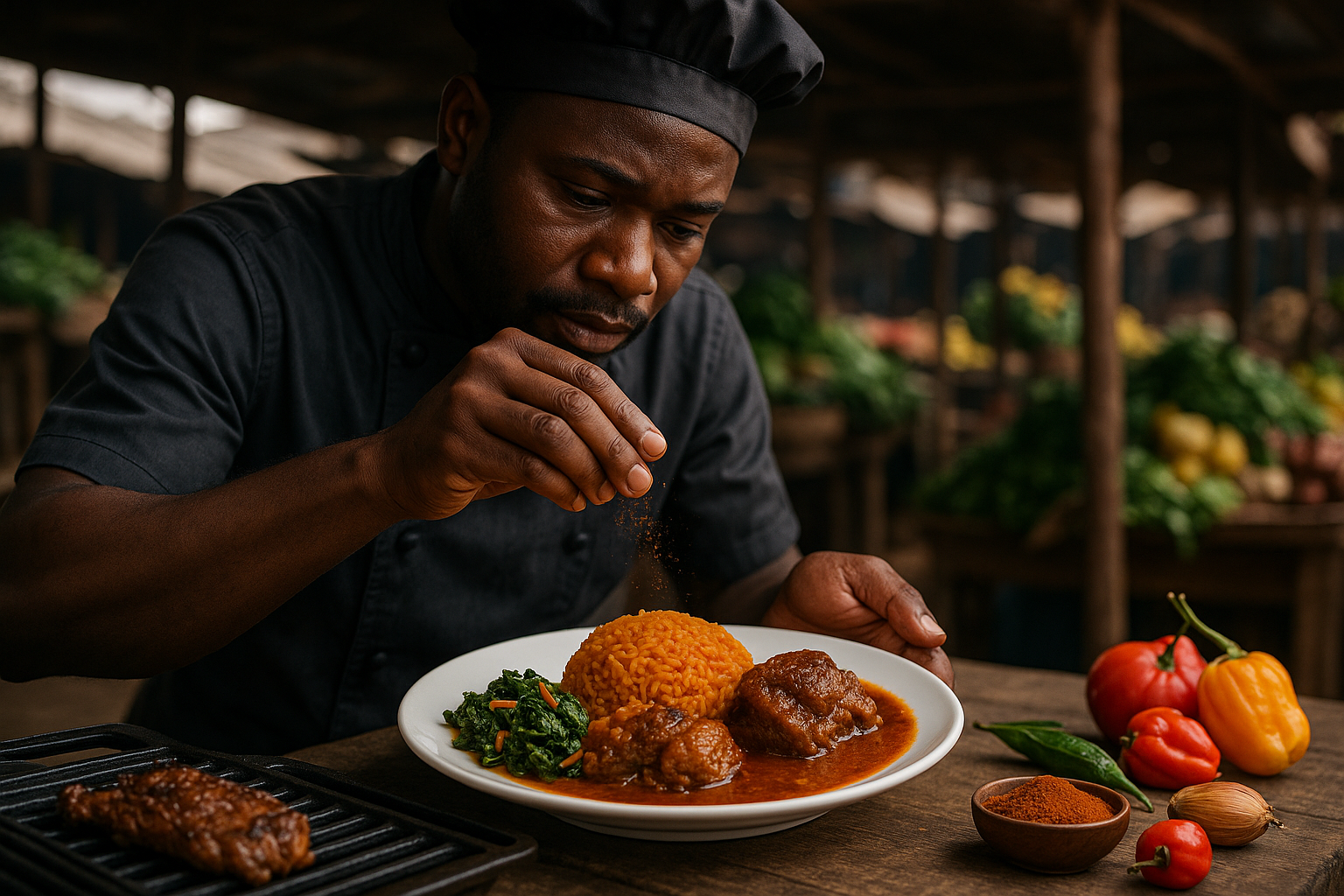Unveiling the Unique Flavors of Nigerian Cuisine
The vibrant and diverse Nigerian cuisine, with its rich flavors and hearty dishes, is a relatively unexplored food frontier for many. This article aims to take you on a tantalizing journey through the captivating world of Nigerian food, shedding light on its unique ingredients, traditional dishes, and the cultural significance behind them.

A Taste of Nigeria’s Traditional Dishes
Nigerian cuisine is characterized by robust flavors and an extensive use of spices and herbs in conjunction with palm or groundnut oil to create deeply flavored sauces and soups. Some of the most popular dishes include Jollof rice, a one-pot dish cooked with rice, tomatoes, onions, and spices; Egusi soup, a nutty soup thickened with melon seeds and containing leafy vegetables, meat, and fish; and Suya, skewered meats coated with a spicy peanut mixture and grilled to perfection.
Nigerian Cooking Techniques Unveiled
Traditional Nigerian cooking techniques reveal an emphasis on slow-cooking methods that allow the ingredients to develop and marry their flavors. Soups and stews are simmered for extended periods, and meats are marinated before grilling or frying. Cooking over an open fire is also a common practice, adding a unique smoky flavor to the dishes.
The Role of Street Food in Nigerian Culture
Street food plays a significant role in Nigerian culture, providing affordable and tasty meals for locals and tourists alike. Akara (deep-fried bean cakes), Puff Puff (deep-fried dough balls), and Boli (roasted plantain) are just a few examples of the delicious street food options enjoyed across Nigeria.
Unearthing the Health Benefits of Nigerian Ingredients
Nigerian cuisine incorporates several ingredients known for their health benefits. Okra, used in soups and stews, is rich in fiber and aids digestion. Bitter leaf, despite its name, has a mild flavor and is packed with vitamins and minerals. Additionally, Nigerian dishes often include lean proteins like fish and chicken, making them a healthy choice.
Innovative Spins on Nigerian Cuisine
While traditional Nigerian dishes remain popular, innovative spins on these recipes are emerging. Chefs are incorporating Nigerian flavors into familiar dishes, creating fusion cuisine that appeals to a broader audience. Examples include Jollof rice burritos, Egusi pizza, and Suya tacos.
Nigerian Cuisine: Quick Facts and Tips
-
Nigerian cuisine is often spicy. If you’re sensitive to heat, ask for less spice when ordering.
-
Fufu, a starchy side made from yam, cassava, or other tubers, is a staple in Nigerian meals.
-
Nigerian markets are a great place to explore local ingredients and spices.
In conclusion, Nigerian cuisine offers an exciting array of flavors that are both traditional and innovative. Its unexplored dishes and unique ingredients present a culinary journey worth embarking on. Whether you’re a food enthusiast or a culinary novice, exploring Nigerian cuisine will undoubtedly enhance your gastronomic experiences.




